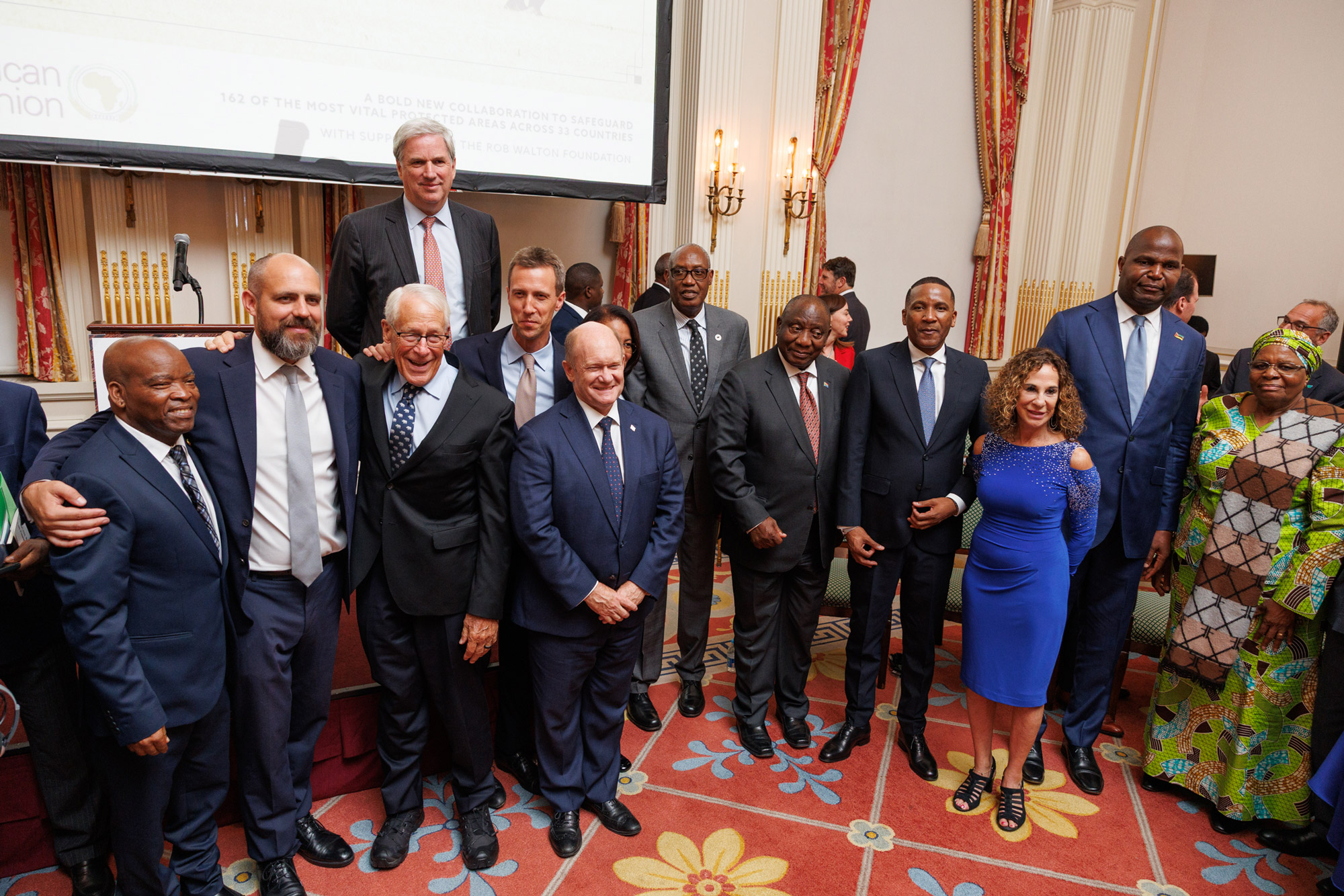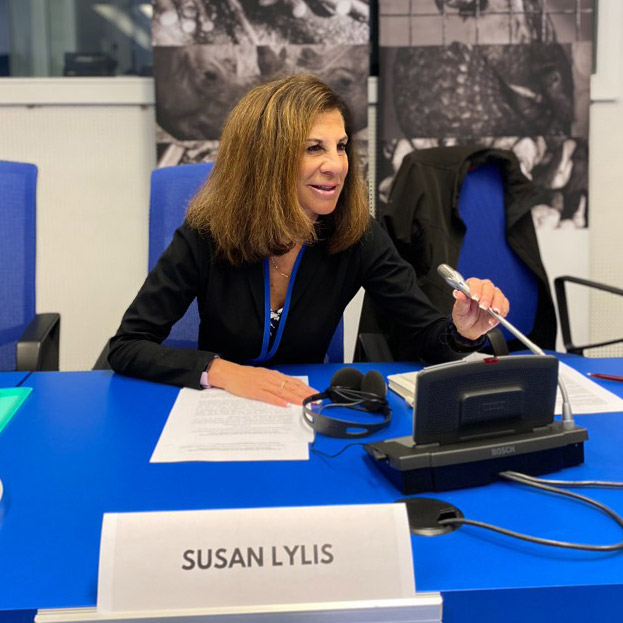Building Political Will for Conservation: In Conversation with Susan Herman Lylis of ICCF

Africa Keystone Protected Area Partnership Heads of State Dessert Reception, New York, NY.
At the African Wildlife Foundation (AWF), policy and governance are as critical to conservation as field action. That is why we partner with organizations like the International Conservation Caucus Foundation (ICCF), whose work in building bipartisan political will strengthens the enabling environment for conservation across Africa.
Through our collaboration with ICCF—whether advocating for increased U.S. government conservation funding for Africa or supporting African policymakers to advance sustainable natural resource laws—we are demonstrating what it means for African-led conservation to shape global agendas.

Susan Herman Lylis, Executive Vice President of ICCF.
This conversation with Susan Herman Lylis, Executive Vice President of ICCF, highlights how strategic partnerships between African institutions and global allies can deliver lasting impact for people and nature.
For those unfamiliar with ICCF, please provide a brief overview of the organization, including its mission, operational approach, and its unique role at the intersection of policy and conservation.
Lylis: The ICCF Group’s primary mission is to advance conservation governance globally by supporting the development of parliamentary conservation caucuses and convening multistakeholder networks to engage with them. This helps foster innovative and sustainable solutions to natural resource challenges.
ICCF U.S. has built a strong bipartisan caucus in the U.S. Congress, and the ICCF Group has expanded internationally to nearly 20 countries across Africa, Asia, Europe, and Latin America. Collectively, our family of global parliamentary caucuses has achieved conservation wins on issues such as marine debris, illegal mining and fishing, forest protection, and wildlife trafficking.
ICCF is best known for building bipartisan support around conservation. What makes this approach effective, and how does it translate into impact on the ground?
Lylis: Our bipartisan approach brings together policymakers from across parties and portfolios to find common ground on conservation challenges. By doing so, we create continuity across political cycles and enable dialogue among leaders who might not otherwise collaborate. This ensures that conservation priorities are carried forward consistently, ultimately driving more durable impact on the ground.
Why has Africa been such an essential focus for ICCF’s work, and how do you see your role complementing the efforts of African conservation organizations?
Lylis: Africa’s vast landscapes and immense biodiversity are critical to global conservation. We believe the stewardship of these resources must be African-led, and so we partner with organizations like AWF that are deeply embedded in African communities and conservation priorities. Our role is to help policymakers create enabling policy environments that complement and amplify the on-the-ground work led by African organizations.
Could you share a few examples of ICCF-led initiatives in Africa that demonstrate how you engage with local leaders and policymakers?
Lylis: One notable example is the Miombo Initiative, pioneered by the President of Mozambique. At the government’s request, ICCF has helped build the political will required to advance this multinational effort, which spans several countries.
We are also mobilizing political will and support for the Africa Keystone Protected Area Partnership, a bold new collaboration bringing together African governments, communities, NGOs, and funders to protect 162 of Africa’s most irreplaceable protected areas by 2035. The Africa Keystone Partnership includes collaborations with Rob Walton Foundation, Wildlife Conservation Society (WCS), African Parks (AP), Frankfurt Zoological Society (FZS), the African Union, the International Conservation Caucus Foundation (ICCF) Group, and the African Wildlife Foundation (AWF), among others. Recently, collaborating with AWF, we helped launch the Keystone Partnership on the sidelines of UNGA 80, which garnered statements of support from the Presidents of South Africa, Mozambique, Botswana, and Namibia, as well as high-level representation from Angola, Rwanda, the Republic of Congo, Sierra Leonne, Zambia, and Gabon.
At the national level, ICCF has helped develop updated wildlife laws in Kenya, Mozambique, and Namibia. We have also supported the improvement of forestry laws in Zambia and Malawi, as well as the development of a new mining code in Gabon.
ICCF works in many parts of the world—what lessons from your global experience are particularly relevant for advancing conservation in Africa?
Lylis: One key lesson is that conservation challenges are shared across regions. Whether it is deforestation, the illegal wildlife trade, or waste management. The caucus model, which we have refined in Washington, Jakarta, Brasilia, and Nairobi, functions in remarkably similar ways. For example, it builds cross-party consensus and empowers policymakers to set their own conservation agendas with input from diverse stakeholders.
How does ICCF envision the future of conservation in Africa—particularly through the lens of youth engagement, community empowerment, and political advocacy?
Lylis: The future of conservation in Africa will be undeniably African-led. We’re encouraged by the growing leadership of young people—both in communities and in elected office—and by their willingness to collaborate with policymakers on innovative solutions. ICCF’s role is to help strengthen these partnerships and build the public-private coalitions that will be key to sustainable conservation outcomes.
Finally, for our partners who are inspired by this strategic approach to conservation, how can they support or engage with this type of advocacy work?
Lylis: We encourage readers to learn more about ICCF’s model and initiatives at internationalconservation.org. Supporting organizations like AWF and ICCF helps ensure that African conservation priorities are backed by strong political will and lasting policy frameworks.